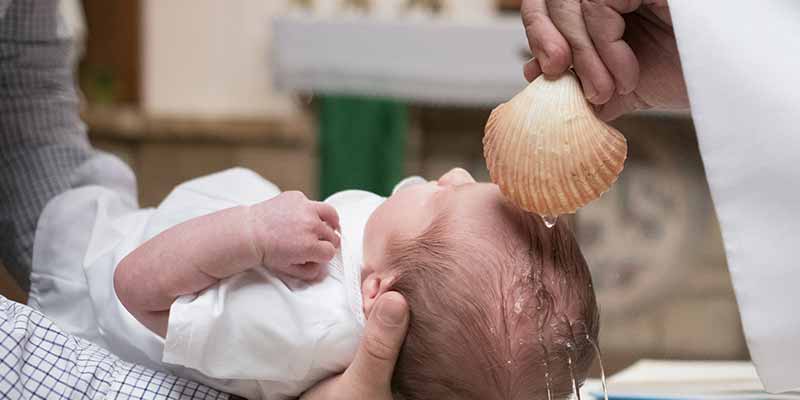Is God a she?
My daughter started studying at Durham University last week scene of the latest round of our culture’s gender war.
Not content with forcing the sacking of the assistant editor of Critique, the university’s philosophy journal for the transphobic hate crime of sharing an article[i] from the Spectator Magazine that said women don’t have penises,[ii] the Students Union have issued “pronoun badges” to all new students bearing the slogan, “My pronouns are:”[iii]. Then there’s a space for the student to fill in their preferred option: whether something traditional like she/her or he/him; or something more gender fluid like: they/them, e/em, per/per, ve/ver, xe/xem.
Lest you think this just affects a bunch of loony students, the same pressures are coming to our schools, where organisations like Stonewall are using equality legislation and anti-bullying campaigns to shift our understanding of gender away from traditional or “binary” religious or chromosome based definitions of male and female towards something “non-binary”, where gender can be as simple as what you declare yourself to be.
And as you’ve probably noticed, with this new thinking, comes new language. The new pronouns used by non-binary people, words like: zie, sie, ey, ve, tey and e will be brilliant for Scrabble, but we shouldn’t be blind to what these new words mean for us. As Big Brother put it in 1984, once
…you control the language, you control the argument”.
Someone else trying to control the language so that she can control the argument is Rachel Treweek, the Bishop of Gloucester. Back in September, she told the Sunday Telegraph she didn’t
…want young girls or young boys to hear us constantly refer to God as he”[iv].
Previously she has challenged the Church of England to stop referring to God as he, and to also use female pronouns[v]. But is she right to do this? What does the Bible actually say about God’s gender? Is God a she?
Let’s start with the obvious. The God of the Bible is not a human being, but Spirit (Numbers 23:19, John 4:24). Therefore God doesn’t have chromosomes or any physical body at all. As Article One of the Church of England’s doctrinal basis (as found in the Book of Common Prayer) puts it, God is
without body, parts, passions.”
But despite this, God must have both a “maleness” and a “femaleness” to Him because the Bible speaks of humankind (both male and female) being made in the image of God (Genesis 1:27).
So what is God’s gender? Well, the overwhelming majority of the pronouns and descriptions of God in the Bible are masculine. Paul’s letters refer to God as Father over forty times and use masculine pronouns throughout. Jesus, who knew a thing or two about God, speaks of God as Father sixty-five times in the gospels of Matthew, Mark and Luke, and over one hundred times in the gospel of John. Most famously, Jesus said this is how you should pray:
Father, hallowed be your name…”
Father, here, doesn’t mean God is our biological father, instead, it’s a relationship term, an invitation into the eternal relationship of God the Father to God the Son; through the Father’s promise of adoption into his family, by trusting in the death and resurrection of Jesus.
But despite all the male pronouns and descriptions, there are also a number of female images of God in the Bible. Whilst at no point is God described as “she” or “her”, He is described as being like a woman in labour (Isaiah 42:14); a considerate, comforting mother (Isaiah 49:15, 66:13); a mother eagle (Deuteronomy 32:11-12), and a mother hen (Matthew 23:37). God’s wisdom is personified as a woman in the book of Proverbs, though we are later told that the male Jesus is the Wisdom of God (1Cor.1:24).
I haven’t added up the numbers but I’d be surprised if these female images of God amounted to more than 0.5% of the total gender-based references to God in the Bible, and so on weight of numbers alone, it’s pretty obvious that God presents himself as male in the Bible, albeit with some significant female characteristics.
However, a critic might reasonably ask to what extent the maleness of God is a consequence of the Bible being written by men in a male-dominated society? Perhaps men have obscured the truth about God by remaking Him in their own image? That question is of course as impossible to answer, as the equal but opposite charge: that when feminist theologians call God she, they are remaking God in their own image and therefore obscuring the truth about Him!
When it comes down to it, we each have to decide whether we’ll trust what the Bible reveals about God, or try to rewrite it to suit our own agenda. The 4th-century theologian Hilary of Poitiers put it like this,
For he is the best student who does not read his thoughts into the [Bible], but lets it reveal its own; who draws from it its sense, and does not import his own into it, nor force upon its words a meaning which he had determined was the right one before he opened its pages. Since then we are to discourse of the things of God, let us assume that God has full knowledge of himself, and bow with humble reverence to his words. For he whom we can only know through his own utterances is the fitting witness concerning himself.”[vi]
Or to put it another way, if God were a student at Durham University, then the Bible is his pronoun badge, and he’s written “He” “His” and “Father” all over it, and who are we to tell Him He’s wrong?
First published in the Bridge Magazine November 2018
[i] https://blogs.spectator.co.uk/2018/08/is-it-a-crime-to-say-women-dont-have-penises/
[ii] https://www.dailymail.co.uk/news/article-6192453/Student-editor-tweeted-women-dont-penises-fired-university.html
[iii] https://www.mirror.co.uk/news/uk-news/university-hands-out-pronoun-badges-13362943
[iv] https://www.telegraph.co.uk/news/2018/09/16/church-england-should-avoid-calling-god-bishop-says/
[v] https://www.theguardian.com/world/2015/oct/24/bishop-rachel-treweek-gods-not-a-he-or-a-she
[vi] De Trinitate (1.18)






